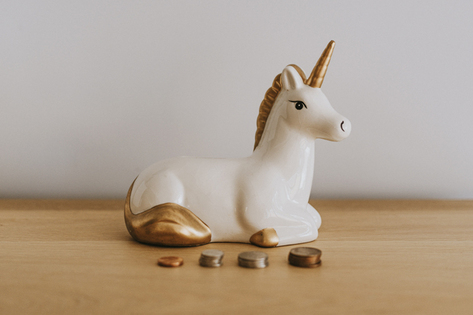
Are You & Your Horse Ready For Bitting Advice? The Steps You Need To Consider First
Equestrian Advice & Guides All Disciplines
Build your business profile for FREE and expose your services to thousands of potential clients!
Create my profile now!
Horses are certainly not cheap to keep and now, with the uncertainties of the effects of Covid 19 continuing for the foreseeable future, we all need to be even more careful with our hard-earned cash. So here's my starter for ten on how to save money on your horsey expenses.
1. Look at your livery costs
Review what you’re paying for at your yard. Could you swap to do some of the work yourself, if this is allowed? Could you turn your horse out more? They’ll be more relaxed, less fresh (!) and you’ll use less bedding. If you pay for full livery and also pay for extras on top – such as grooming, riding of your horse or competition prep - could you ask for some duties to be taken off? Could you park your horsebox/trailer with a friend rather than pay for parking on top of your livery?
2. Trim your transport costs
If you run a horsebox, you’ll know this is a big cost. Try clubbing together with friends on shows or clinics you want to attend and then you can share transport and fuel costs. It requires a certain amount of planning but can save you tons.
Hiring horse transport is easy these days too. So you don’t need to have the considerable expense of buying a horsebox outright or maintaining one. You can just hire a box (usually a 3.5 tonne) whenever you need to, for around £90-100 a day.

This might mean you could sell your horse transport while money is tight and buy again when the economy picks up. Maybe you could even car-share to get to the yard to ride, in order to save money on fuel every day?
3. Use the vet sensibly
Lots of vet practices offer ‘zoning’ whereby they offer routine treatments (like vaccinations) in a zone, meaning they will treat multiple horses in the same area for a discounted price. It just means you need to be organised and mark in your diary when your horse’s flu and tetanus is due, rather than panicking one week before the competition!
Also, take precautions before you call out the vet. Obviously never delay if it’s something serious, like a severe lameness or colic symptoms. But use your head. Check all the obvious signs or ask someone more experienced than yourself whether you really need the vet immediately. If it’s a foot issue, your farrier may be able to help just as easily as your vet – and less expensively too.
4. Be smart with the farrier
Don’t leave your horse longer between shoeings – that’s false economy that could lead to foot and lameness problems. However, speak to your farrier and discuss whether your horse actually needs shoes the whole time. For example, If you aren’t going on the road, could you do without back shoes? If your shoes aren’t very worn, make sure you have re-fits and don’t pay for unnecessary new shoes. Club together with other owners to use the same farrier and cut down on travel costs. If you’re competing, keep a set of shoes with stud holes each season, to take to competitions in case you lose one. It’s quicker, easier and cheaper to put on one.

5. Sell your unwanted tack
Yes, it’s annoying when your things go for a lot less than you paid for them, but better that than they go mouldy unused in the tack room. There’s a strong market for equestrian items on online auction sites like eBay, or you can list your tack within the Tack for Sale category here on Horsemart. So dig through that trunk and sell that rug that won’t fit your current horse or clear out your wardrobe and sell those jodhs that are a little bit too tight now. If you’ve got a saddle to sell, try saddlesdirect.co.uk. It’s very satisfying seeing the sales of your old tack come in, and you can put the money towards things you really need.
 6. Don’t fritter away cash on feed
6. Don’t fritter away cash on feed
If you look after your horse yourself, try buying feed in bulk or clubbing together with other owners to do so, as feed costs less in bigger volumes. Review the feed supplements that your horse is on; check the ingredients and their potency and see if you can get the same potency of ingredients in a different and cheaper formulation. Ask your vet or a nutritionist for advice if you need it.
7. Make do and mend
Looking after the things you have and trying not to over consume is not only frugal, it’s environmentally conscious. Rather than buying new rugs every year – a favourite horse owner activity – make sure you regularly wash and re-proof old ones to keep them in good repair. You can wash a turnout rug in some detergent with a hosepipe and brush, hang on a line to dry and then reproof it yourself. Or take stable rugs to a garage launderette. Use torn travel sheets or stable rugs as under rugs. Use white wine vinegar to clean up mouldy old tack. Then soap and use balm or oil if needed, to keep it in good condition. Well maintained tack will last longer.
8. Shop around
Before you do buy anything new, make sure you’ve checked the price on several websites or in stores. It’s easy enough to do on Google, and a few minutes invested can save you pounds. You know how frustrating it is to buy something only to find out afterwards that you could have got a cheaper equivalent. So do your homework! Also, check with friends or others on the yard, in case anyone is selling what you need.
9. Pack a lunch
If you’re going to be out for a few hours, either at a show, having a lesson or just down at the yard, try making a flask to take with you rather than buying coffee. It’s less glamorous but costs less too! All those pounds add up. Same goes for lunch. If you can be organised enough to take a sandwich or a bun with you, then you’ll save on overinflated prices at competition venues.

10. Horse insurance
When your insurance comes up for renewal, shop around for a cheaper deal. Don’t let it roll over just because you can’t be bothered, as you will pay a premium. Also, check with any clubs or competitive bodies that you are a member of, to see if you get a discount elsewhere. Many insurance companies offer a 10% discount to members of BE, BS or BD, or even riding club members.
As you can see from these tips, saving money doesn’t mean compromising on your horse’s care, it’s just about being smart with your money. Plus, if you save a few pounds now, you're much more likely to be able to reward yourself with the ocassional equestrian treat in the future... and we all know how good that feels.
The author of this article, Lisa Simpson, is a freelance advertising copywriter and amateur event rider, who currently competes her 17hh horse Jack at BE and BS. Find out more about her and her copywriting work on her website > https://lisasimpsoncreative.co.uk/

